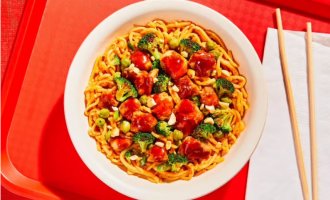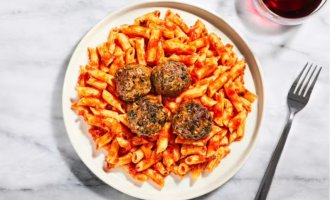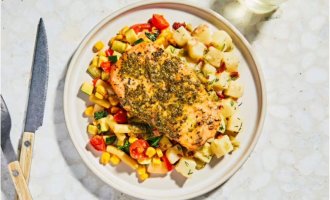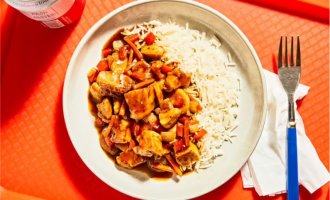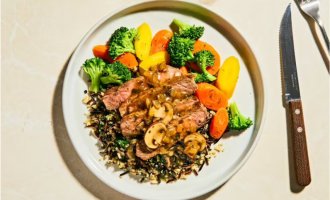Deadlines for work. What to eat for dinner. The corner of your room that is always cluttered. Not to mention current events that have us all at peak levels of anxiety. Stress comes from all kinds of sources—some we can, and some we can’t control.
Research confirms the mind/gut connection is real: what you eat can impact how you feel, and can actually change the way your brain works and communicates with your body. The vitamins, minerals and hormones that you ingest through food are digested in your gut, which sends signals to your brain and vice versa. So it’s more important than ever in times of unusual stress to fuel your gut and your brain with the best possible ingredients.
We talked to Brooke Scheller, Doctor of Clinical Nutrition who shared some of her top foods that have been shown to help brain function, lower blood pressure, and help your mind (and your gut) de-stress.
Mental health is a wide, varied, and nuanced topic. These tips are to help manage everyday moments of stress. If you’re feeling overwhelming amounts of stress, talk to your doctor or reach out for help.

Salmon: In addition to being our favorite shade of millennial pink, salmon is full of polyunsaturated fats, which have been shown to potentially help brain function and improve mental health: one study found that polyunsaturated fats are very important for the maintenance and function of the nervous system. That same study singled out Omega 3 fatty-acids as a powerful anti-inflammatory.

Dark Chocolate: It’s not just on this list because it’s delicious—the flavanols in chocolate help to relax blood vessels, improve blood flow and can help lower blood pressure. A study at Qassim University showed that females self-reported less stress after eating dark or milk chocolate, but the researchers noted it may be anecdotal. Even so, if eating chocolate makes you feel better, go for it. Just look for a 60% concentration of dark chocolate or higher to reap the documented health benefits.

Greek Yogurt: Yogurt naturally contains probiotics, live microorganisms which may have a lot of health benefits. Probiotics in particular help your body keep up with the “good bacteria” it needs to keep your digestive and immune systems running. A study at UCLA found that women who ate probiotic yogurt regularly had a reduced response to emotional stimuli, further proving the mind and gut connection. We like Greek yogurt because it usually contains more probiotics and more protein per serving. Check the your labels for the probiotics lactobacillus acidophilus and lactobacillus casei and aim for a yogurt with no added sugar.

Bananas: Bananas are packed with B vitamins, which studies have shown may help lower symptoms of anxiety. One study found that otherwise healthy men who took multivitamins high in B vitamins showed it helped to reduce negative moods and promote general feelings of well-being.

Oatmeal/Oats: A warm, soothing bowl of oatmeal feels good for your stomach and soul—and it actually is. Oatmeal contains tryptophan, which is an amino acid that helps the body produce serotonin and melatonin. Serotonin is a chemical that has a wide variety of functions, but research has shown to play a part in the susceptibility and treatment of depression and anxiety. Melatonin is a hormone that helps us sleep, and lack of quality sleep is widely known to increase irritability and stress.

Blueberries: Overall, anxiety is thought to be associated with a low antioxidant state. Increasing antioxidants can help fight oxidative stress, which studies show has a correlation to depression and anxiety. Berries are especially high in antioxidants, and blueberries are thought to be the absolute highest in antioxidants.

Nuts: Include nuts like cashews or brazil nuts with high levels of magnesium in your diet. Magnesium may help to regulate the brain and nervous system. Low magnesium is associated with headaches, anxiety, panic attack disorders, insomnia, fatigue and more.
- Salmon, Raw 127 kcal
- Coho Salmon, Raw 146 kcal
- Keta Salmon, Raw 116 kcal
- Pink Salmon, Raw 143 kcal
- Sockeye Salmon, Raw 153 kcal
- Dark Chocolate 581 kcal
- Banana, Raw 89 kcal
- Oats, Raw 379 kcal
- Blueberries, Raw 57 kcal
How do you start losing weight?
First you need to determine your daily calorie intake. Most of your energy is spent on bodily functions.
The Calorie Calculator for Weight Loss can help you determine how many calories you need to consume each day.


